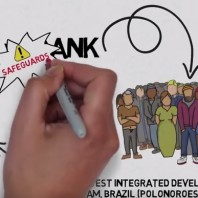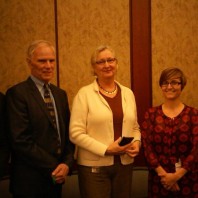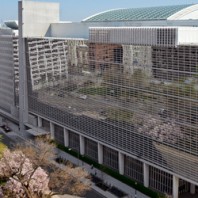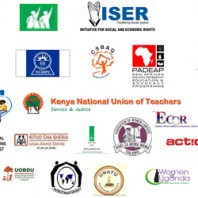The World Bank has a complex track record with human rights and the environment. On one hand, they are one of the world’s most important development institutions, and their main goals are to eliminate poverty and boost prosperity. On the other, they have a history of sidelining the well-being of communities and ecosystems that are …
PRESS RELEASE (October 5, 2015) The World Bank, with an overarching mission to end poverty, hosts its Annual Meetings this week in Peru. Given that the impacts of climate change disproportionately harm the poor, and that world leaders are set to make a global agreement on climate change this December, climate is at the top …
On September 30th, the Tom Lantos Human Rights Commission held a hearing at the United States Congress on international financial institutions (IFIs) and human rights, chaired by Congressman Jim McGovern. Witnesses included BIC’s Nezir Sinani from Kosovo, Milton Sanchez from Peru, and Obang Metho from Ethiopia, who testified on the human rights impacts of World …
BIC recently published two reports analyzing the impact of World Bank and IFC finance on forests and forest peoples around the world. These publications outline the findings of BIC’s review of World Bank Group public and private sector lending from the perspective of investments both within the forest sector, and in the primary sectors that …
On August 4, 2015 the World Bank publicly released the second draft of its Environmental and Social Framework (ESF), thus initiating Phase 3 of the safeguards review. The ESF contains the safeguard policies designed to protect communities and the environment in World Bank investment projects. The effectiveness of the World Bank’s new safeguards is compromised by several …
June 2015 Following a letter that multiple Tunisian CSOs sent to the World Bank office in Tunis with their asks regarding the Tunisian Systematic Country Diagnostic (SCD) and Country Partnership Framework (CPF) consultation process, the signatories of the letter – along with several other CSOs and academics – were invited to participate in a discussion …
The Bank has commenced with the process of Country Partnership Frameworks in a number of MENA countries. Each country has taken a different path than originally expected.
First and foremost, the organizations are asking that clear information be posted on the Bank’s website regarding the CPF timeline. As it stands, there is no information about the CPF process in Tunisia either on the Bank’s country webpage or on the Bank’s consultation hub.
More than 100 organisations across the world released a joint open statement expressing deep concerns about the World Bank’s support for a multinational chain of low-fee profit-making private primary schools targeting poor families in Kenya and Uganda, Bridge International Academies (BIA).
Egypt and Morocco are the two largest recipients of World Bank lending in the Middle East and North Africa region and as such it was appropriate and important that the Bank held consultations in those two countries as part of a series of global consultations around the Bank’s draft of its proposed Environmental and Social …







